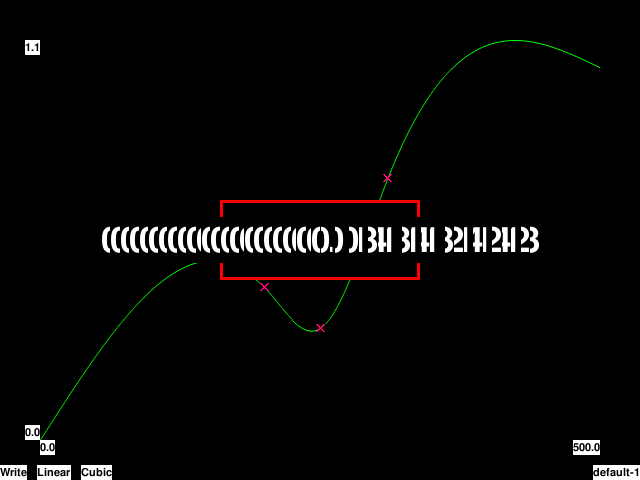January 28, 2014♦

☀
E
F
F
L
U
E
N
C
E
☀
EVR.include("menu/Command.js");
EVR.Menu.Parser = function(container, width, height, margin, dispatcher)
{
this.container = container;
this.width = width;
this.height = height;
this.margin = margin;
this.dispatcher = dispatcher;
this.parse();
}
EVR.Menu.Parser.prototype.parse = function()
{
var document = this.fetch_folder(MENU_INITIAL_SCRIPT);
this.options = [];
this.build_options(document.firstChild, this.options, true);
}
EVR.Menu.Parser.prototype.fetch_folder = function(file)
{
var path = SOURCE_PATH + "menu/folder/" + file;
var document = new EVR.Requester(path, null).execute();
return document;
}
EVR.Menu.Parser.prototype.build_path = function(name)
{
return MENU_PATH + name + MENU_EXTENSION;
}
EVR.Menu.Parser.prototype.build_options = function(node, options, visible)
{
var current = node.firstChild;
for (var ii = 0; current; ii++)
{
options.push(this.build_option(current, ii, visible));
current = current.nextElementSibling || current.nextSibling;
if (!!!current || current.nodeType == 3)
{
break;
}
}
return options;
}
EVR.Menu.Parser.prototype.build_option = function(node, ii, visible)
{
var name = this.extract_name(node);
var command = new EVR.Menu.Command(node);
var option = new EVR.Menu.Option(
this.container, this.dispatcher, ii, name, this.width, this.height,
this.margin, visible, command);
this.add_children(option, node);
return option;
}
EVR.Menu.Parser.prototype.extract_name = function(node)
{
var name = node.firstChild.nodeValue;
name = name.replace(/^\s+|\s+$/g, "");
name = name.toUpperCase();
return name;
}
EVR.Menu.Parser.prototype.add_children = function(option, node)
{
if (node.tagName == "folder")
{
node = this.fetch_folder(node.getAttribute("script")).firstChild;
option.children = [];
this.build_options(node, option.children, false);
}
}
EVR.Menu.Parser.prototype.toString = function()
{
return "[object EVR.Menu.Parser]";
}
EVR.Menu.Dispatcher = function(evr, menu)
{
this.evr = evr;
this.menu = menu;
}
EVR.Menu.Dispatcher.prototype.escape = function()
{
this.menu.escape();
}
EVR.Menu.Dispatcher.prototype.load_level = function(id, practice)
{
practice = parseInt(practice) ? true : false;
this.evr.load_level(id, practice);
}
EVR.Menu.Dispatcher.prototype.load_album = function(index)
{
this.evr.load_album(index - 1);
}
EVR.Menu.Dispatcher.prototype.load_instructions = function()
{
this.evr.load_instructions();
}
EVR.Menu.Dispatcher.prototype.load_history = function()
{
this.evr.load_history();
}
EVR.Menu.Dispatcher.prototype.load_account = function()
{
this.evr.load_account();
}
EVR.Menu.Dispatcher.prototype.log_out = function()
{
this.evr.log_out();
}
EVR.Menu.Dispatcher.prototype.load_about = function()
{
this.evr.load_about();
}
EVR.Menu.Dispatcher.prototype.load_ending = function()
{
this.evr.load_ending();
}
EVR.Menu.Dispatcher.prototype.ignore = function()
{
}
EVR.Menu.Dispatcher.prototype.toString = function()
{
return "[object EVR.Menu.Dispatcher]";
}
EVR.Menu.Background = function(container)
{
EVR.Graphic.call(this, container, null, null, ALIGN_CENTER);
this.set_proportions(1, .36);
this.place(null, -.0025);
// this.set_color(MENU_BACKGROUND_COLOR);
// this.css.borderTop = "2px solid #505050";
// this.css.borderBottom = "2px solid #505050";
this.append();
}
EVR.Menu.Background.prototype = new EVR.Graphic;
EVR.Menu.Background.prototype.toString = function()
{
return "[object EVR.Menu.Background]";
}
<?php
require_once(dirname(__FILE__) . "/Levels.php");
echo new folder\Levels(true);
<?php
require_once(dirname(__FILE__) . "/Album.php");
echo new folder\Album();
<?php
namespace folder;
require_once "Builder.php";
class Main extends Builder
{
public function __construct()
{
parent::__construct(False);
}
protected function add_options()
{
$this->add_folder("Play", "fetch_levels_folder");
$this->add_folder("Practice", "fetch_practice_levels_folder");
if ($this->progress > 0)
{
$this->add_folder("Browse Album", "fetch_album_folder");
}
if ($this->progress > 0)
{
$this->add_option("Records", "load_history");
}
$this->add_option("How to Play", "load_instructions");
if (!\account\is_permanent_account($this->user_path))
{
$this->add_option("Log in / Register", "load_account");
}
$this->add_option("About", "load_about");
if (\account\is_permanent_account($this->user_path))
{
$this->add_option("Log out (" . $_COOKIE["name"] . ")", "log_out");
}
if ($this->progress >= 10)
{
$this->add_option("View Ending", "load_ending");
}
$this->add_option("Press F11 for fullscreen", "ignore");
}
private function add_folder($name, $script)
{
$this->startElement("folder");
$this->writeAttribute("script", $script . ".php");
$this->text($name);
$this->endElement();
}
private function add_option($name, $action)
{
$this->startElement("option");
$this->writeAttribute("action", $action);
$this->text($name);
$this->endElement();
}
}